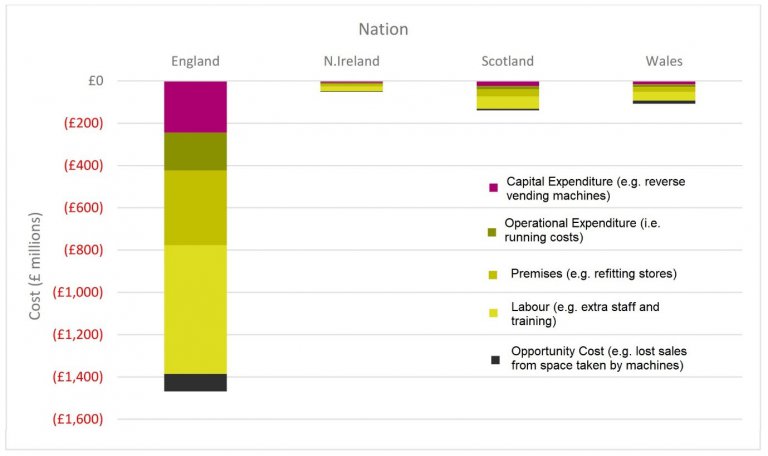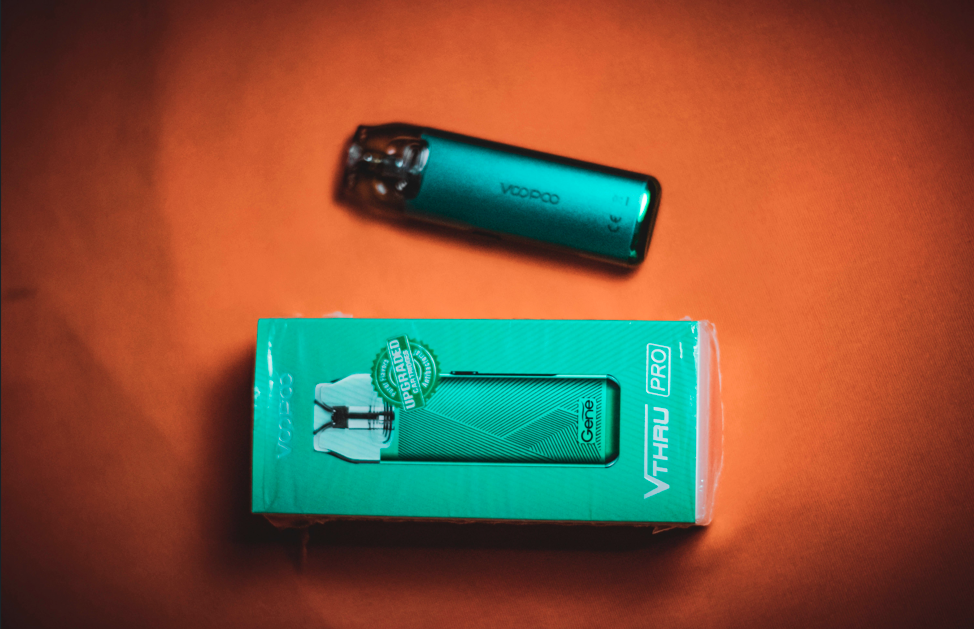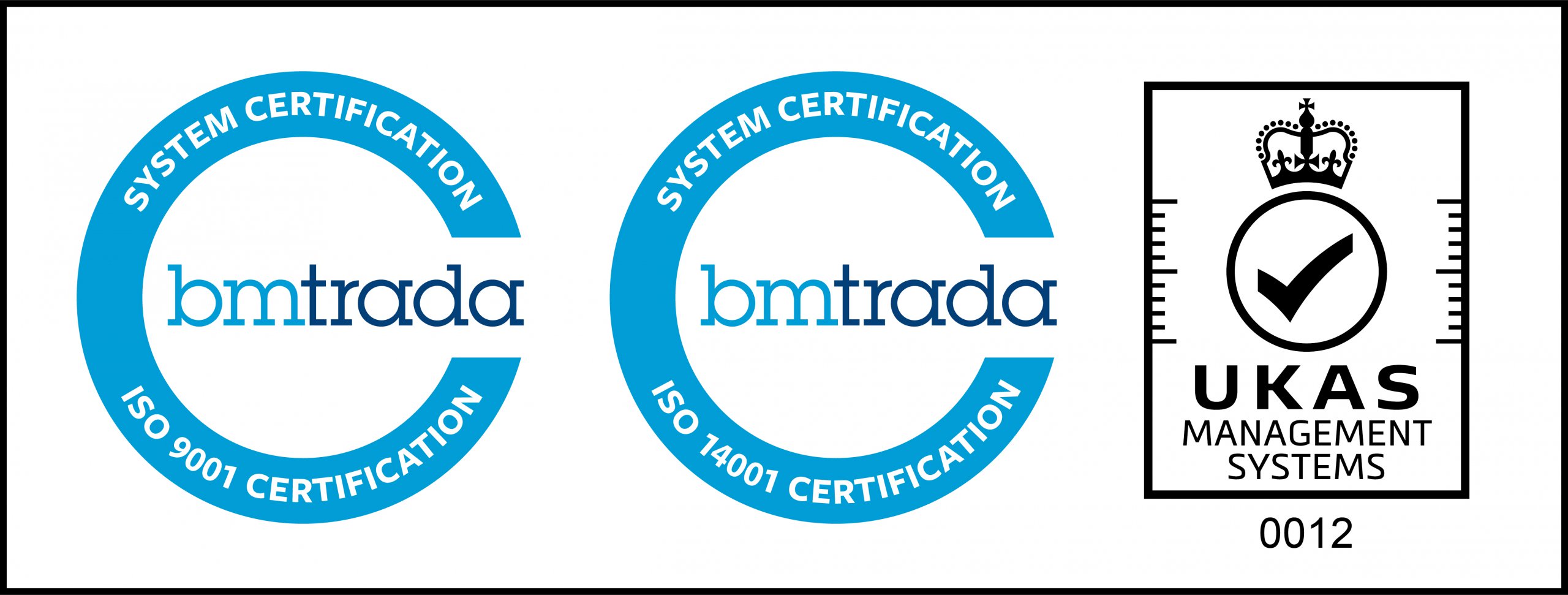As the dust settles on Defra’s announcement that payments under extended producer responsibility will be delayed, pressure has ramped up on the department to also review the deposit return scheme (DRS) timelines.
The British Retail Consortium, which represents some of the largest retailers in the country, predicted that annual costs under the system will top £1.8 billion for retailers, most of which would inevitably be passed on to consumers.
The £1.8bn per year estimate from the group includes capital costs, including buying and installing Return Vending Machines (RVMs), labour costs and other operating costs, including service and maintenance for RVMs, IT costs and cleaning of containers used for collection.
This estimate was given on the back of research the group published, a breakdown of the estimated costs can be seen below:

Response
The response, as expected, has been mixed from parts of the industry.
Some councils have their own concerns over the system, as it could take away valuable material such as plastic bottles from their kerbside mix.
However, they tend to favour a digital DRS rather than an outright delay. This would see consumers able to claim back their deposit via an app but still use their kerbside systems.
This viewpoint was also backed by the CIWM, who said soon after the BRC report that if consistency and EPR are rolled out correctly, the DRS will be “unnecessary”.
See our previous story on the 'UK-wide Deposit Return Scheme looking more likely for 2025' [30.05.23];
Or, our stories covering 'DRS in Wales' [12.05.23], or 'DRS in Scotland' [19.04.23].

















